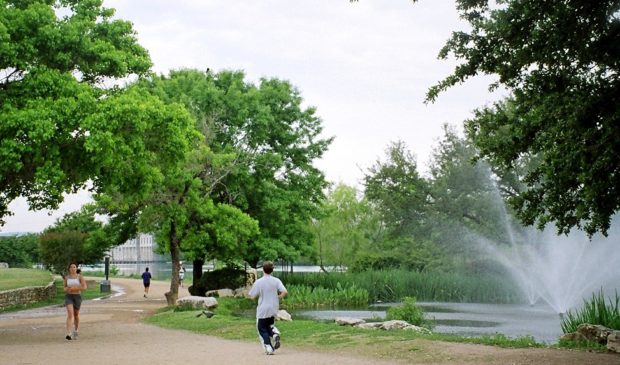Housing at odds with parkland and open space in code rewrite
Tuesday, February 18, 2020 by
Ryan Thornton The city’s well-established reputation as a land of abundant green spaces collided with its lack of housing supply last week as City Council debated amendments to the draft Land Development Code.
At stake were city requirements for open spaces and parkland dedication at new residential sites and the possibility that those demands could stop developers from providing the kinds of housing types the city needs in the places it needs them. The debate highlighted a key difference in priorities between Council members over which issue – securing parkland or encouraging new housing – is more pressing.
Given the choice between the two, in the present circumstances, Council Member Natasha Harper-Madison and Mayor Steve Adler said they would choose housing.
“I support parkland and I support open space, but in this case, in this instance, it’s a choice and right now I think the bigger threat to the health and well-being of our community is … the loss of diverse housing supply,” Adler said.
Adler brought an amendment to allow changes to the city’s Parkland Dedication Ordinance so that a fee-in-lieu payment option would be accepted as an option for smaller sites on major corridors.
The Parks and Recreation Board voted on a resolution in October 2019 to protect the ordinance as much as possible from any significant changes under the Land Development Code rewrite.
Council Member Kathie Tovo defended the preservation of that ordinance. “We are a long way from meeting our goal of having every person in the city live within a quarter-mile walk of open space and a parkland.”
Scott Grantham of Parks and Recreation said the department only rarely asks for dedicated parkland on sites smaller than 6 acres. Adler pitched his proposal as a codification of that practice for sites between 1.66 and 6 acres to keep developers from shying away from corridors, where the city aims to concentrate its new housing supply.
Council Member Alison Alter took the opportunity to mention that only around 6 percent of all parkland dedication cases since 1985 have required land dedication. That trend, she said, is not helping the city close the gap on its parkland deficiencies. In particular, she said this amendment may disproportionately impact neighborhoods where there is the greatest need for parkland today.
“This amendment is making it so that we will not be providing the parkland that is needed in those parts of town that need it most as we densify,” Alter said. “We are telling parts of our community that they do not need to have access to parks and I’m really uncomfortable with that.”
As a representative of the “Eastern Crescent,” Harper-Madison took issue with Alter, whose district falls almost entirely west of MoPac Expressway, playing the advocate for East Austin constituents when it comes to the need for parkland. Housing is the primary concern for East Austin residents, she said.
“I just want us to be very careful as we are attempting to advocate for communities and our constituents to not make assumptions about what they need,” Harper-Madison said. “It’s not comfortable when people feel like folks who didn’t ask them to do so are advocating for them in a way that is not accurate.”
Harper-Madison brought a similar amendment related to the draft code’s requirement for open spaces like community courtyards or private balconies. Her amendment increased the threshold for the common open space requirement from 10 to 12 units. It also removed the requirement for private open spaces, like patios and balconies, for “missing middle” housing types with up to 11 units.
Harper-Madison said the costs of open space requirements can be a barrier to developing house-scale multifamily units. Citing the American Institute of Architects, she said, “On small urban core lots, this urban space requirement will have a big effect on yield.”
Council Member Ann Kitchen objected to the amendment on the grounds that private personal open space is important to health and is something everybody has a right to enjoy.
“I don’t think we have to make a choice between people’s open space and the ability to have sufficient housing at affordable prices,” Kitchen said. “It’s not a choice that I think we should make because the quality of life of every individual is important and that includes open space.”
Harper-Madison contended that her language does nothing to take away the right to open space, but only removes the mandate for smaller multifamily housing types.
Both amendments passed 7-4 with Council members Leslie Pool, Alter, Tovo, and Kitchen voting against.
Photo by Larry D. Moore [CC BY-SA 3.0 or GFDL], via Wikimedia Commons.
The Austin Monitor’s work is made possible by donations from the community. Though our reporting covers donors from time to time, we are careful to keep business and editorial efforts separate while maintaining transparency. A complete list of donors is available here, and our code of ethics is explained here.
You're a community leader
And we’re honored you look to us for serious, in-depth news. You know a strong community needs local and dedicated watchdog reporting. We’re here for you and that won’t change. Now will you take the powerful next step and support our nonprofit news organization?











